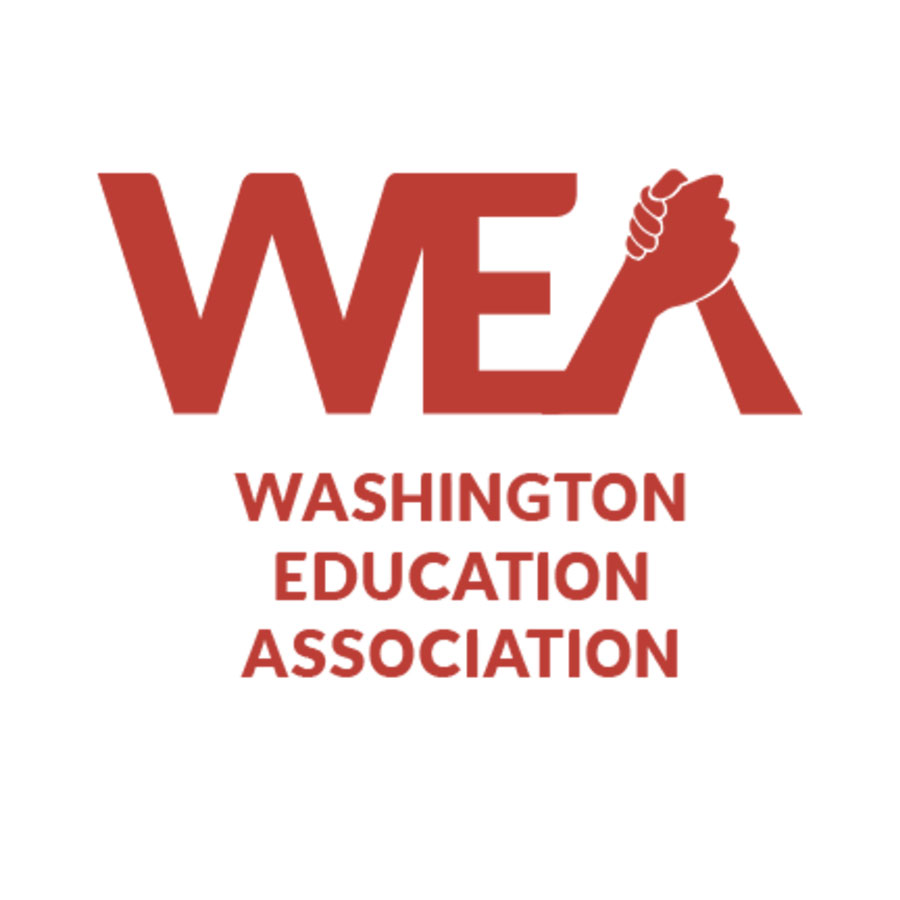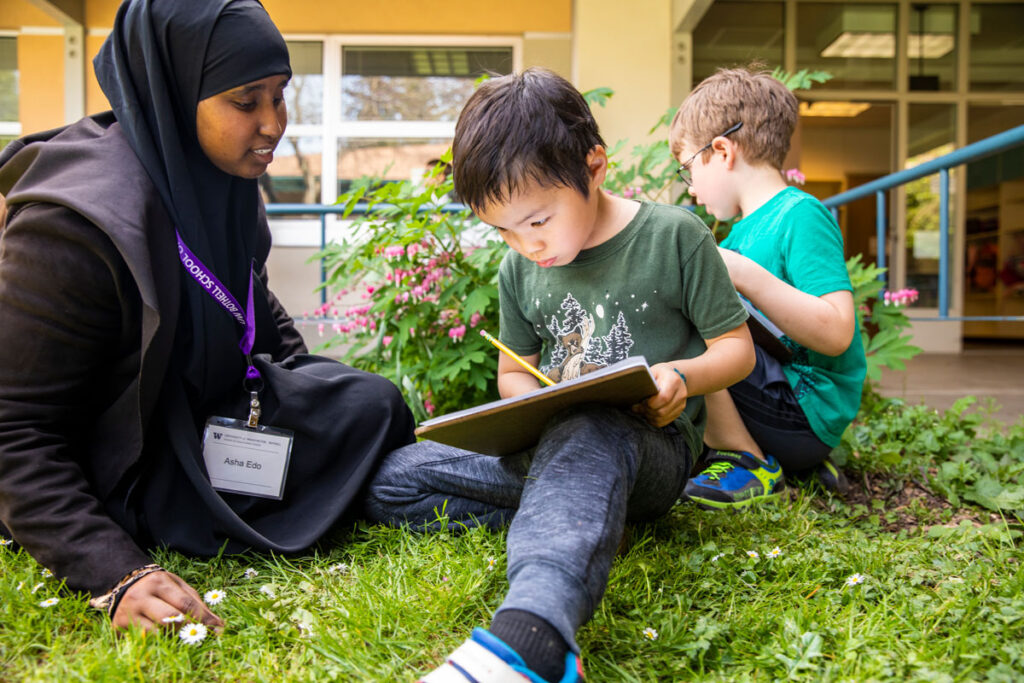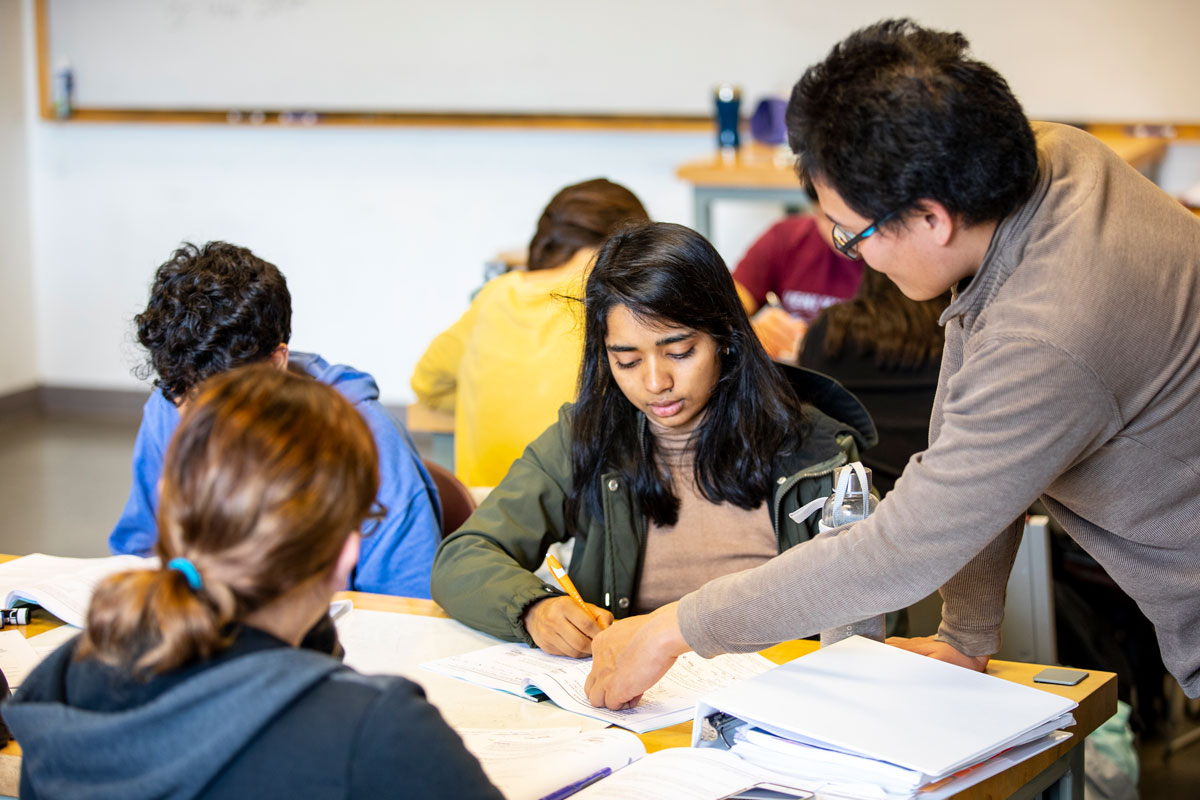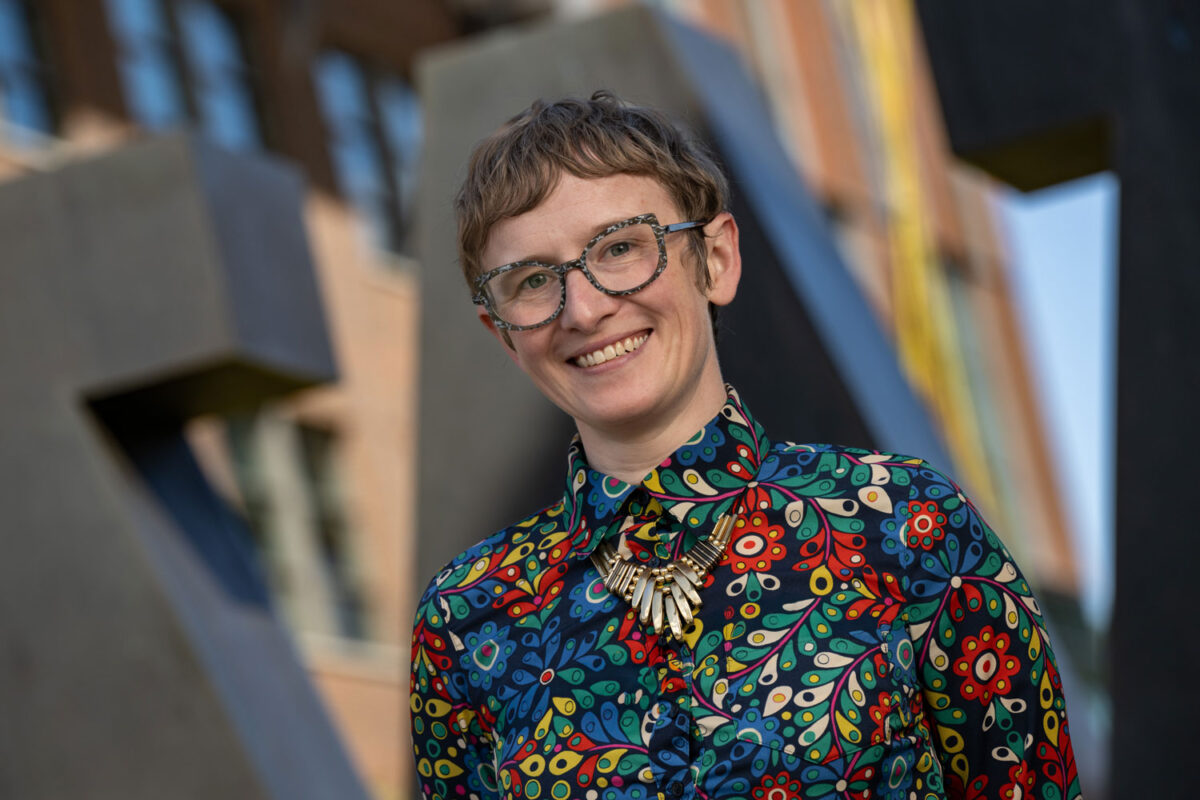Although nearly 50% of public school students self-identified as a person of color in 2021, less than 13% of teachers did, according to the Washington State Professional Standards Board.
To help address this imbalance, the Washington Education Association recently gifted the University of Washington Bothell’s School of Educational Studies $1.5 million to help diversify the teacher workforce.
“This money will go a long way to supporting the diversity of the next generation of teachers,” Dr. Wayne Au, dean of the school, said. “Because it’s such a substantial amount of money, we really have a lot of room to be creative with how we support students.”
Added Brandon Washington, associate director of philanthropy for UW Bothell, “This partnership with the WEA is grounded in an aligned mission to support the educational journey of future educators from non-traditional and historically underserved communities. It creates a pathway for more teachers to reflect and serve the richly diverse communities in our region and state.”
The difference a dollar can make
One hundred percent of the funds for this gift are made possible by the support and generosity of WEA members, said Larry Delaney, the association’s president. During an annual meeting two years ago, a bylaws amendment was proposed to create a special monthly assessment of one dollar per member over the next 10 years for the purpose of providing scholarships for BIPOC future educators. The assessment was passed by an overwhelming majority.

“Representation matters, and we recognize the importance of students being able to see someone at the front of the classroom who looks like them and can maybe better understand their story,” Delaney said. “This initiative was born out of conversations we’ve been having and brainstorming about what we can do as the Washington Education Association to try and effect some change.”
With about 85,000 members, the monthly assessments bring in about a million dollars each year.
“We’re excited that the dollars that we collect are going to help folks finish their college education and ultimately help to get them into a classroom where they can really impact our communities,” Delaney said.
When looking for the right fit for an institution that would make the best use of the money, Justin Fox-Bailey, Snohomish Education Association president and a WEA board member, reached out to Au at UW Bothell’s School of Educational Studies.
“I’ve always known Wayne to be a real advocate for building systems that are fairer and that advance the belonging of everyone,” Fox-Bailey said. “We wanted to find places that were already working in the space that we were seeking to enter, and I think it’s fair to say that Wayne and UW Bothell have shown that they’re committed to a more inclusive educational profession, one that honors everybody’s authentic, individual selves and brings them into the profession in a way that expands opportunity.
“They’re one of the leaders in the state for having programs for students going into education that mirror and reflect our communities.”
Acknowledging the significance of the WEA’s commitment, UW Bothell Chancellor Kristin G. Esterberg said, “This generous gift celebrates the work that our faculty and staff in the School of Educational Studies have been doing over many years. I am confident that Dean Au and his team will use it to further diversify the classroom and transform the learning experience for all students.
“We are sincerely grateful to each member of the Washington Education Association not only for their support of this gift but also for their commitment to better representation in their field.”
“[Dr. Wayne Au] and UW Bothell have shown that they’re committed to a more inclusive educational profession. They’re one of the leaders in the state for having programs for students going into education that mirror and reflect our communities.”
Justin Fox-Bailey, Snohomish Education Association president and WEA board member
Key obstacles for BIPOC students
While Delaney had initially envisioned the funds to go toward scholarships for students at the beginning of their education, Au noted that the most financially challenging part of completing a degree is often much closer to the finish line.
Student resources oftentimes run out by the end of a four-year program, and many scholarships that are intended to jumpstart their education may apply to only the first year or two. For aspiring educators, one of the greatest financial hurdles is the final leg of their program — the student teaching experience.
“One of the biggest obstacles to becoming a teacher is the large number of hours that students are required to be full-time student teachers,” Au said. “It’s hard, exhausting, unpaid work that takes a lot of time and focus. Students don’t have the capacity to have jobs during their student teaching, so it can be really limiting. One of the most impactful things we can do is pay them a living stipend during that challenging time.”
In conversations with the school, Delaney said he felt confident in the institution’s ability to assess where the greatest need lies. Thus, the gift was awarded with flexibility in mind so that the University can best decide how to use the resources.
The $1.5 million gift is the largest in the School of Educational Studies’ history. While most of the funds will be earmarked for living stipends for students completing their student teaching work, Au noted that the leeway afforded by WEA will also leave room for emergency expenses and other needs that arise during students’ education.
Alongside Au, Dr. Nathanie Lee, assistant teaching professor in SES, drew from her own research in their proposal for the funding. Her doctoral dissertation focused on how novice teachers of color navigated their racialized identities within diverse teaching contexts during their first year of teaching.

Barriers to teacher and student success
“A growing body of research tells us that having teachers who look like our students can lead to a variety of positive outcomes,” Lee said, “such as relationship building, having students see themselves in their role models and having teachers who may have a deeper understanding of the systemic barriers that prevent many students from being validated and seen in the school system.
“At UW Bothell, about 43% of our teacher candidates identify as BIPOC, and it is a great honor for us to be supporting and growing alongside these teachers who will one day make a difference in their students’ lives.”
Lee added that she wants to use the new resources to develop a program or space where recipients of these funds can come together to be supported and to support one another.
“I hope that we are able to develop a sustainable program that empowers our students to see themselves as vital to our school and the spaces they are also teaching in,” she said. “Through these supports, I also hope they feel they can use their voices and are equipped to break down the systemic barriers that are instantiated within our education system.”
Cristal Rangel Peña, a graduate program adviser in SES, looks forward to what this money could mean for the students she supports. From her meetings with them, she knows how challenging it can be for some students of color to be placed with white mentor teachers in mostly white schools during their student teaching.
“Students have shared that they feel they need to act, dress or talk a certain way to fit into these schools and to be taken seriously as a professional. Our students are not seeing themselves reflected in the current teacher workforce,” she said, “and it impacts the way they show up for their own class full of students.
“I’m excited to see how the gift from WEA will support diversifying the teacher workforce and recruiting and retaining future teachers of color. When our teachers can show up as their true, authentic selves and really make connections with their students of all backgrounds, all students — and their teacher colleagues — will benefit.”
A more diverse future for education
UW Bothell is the second school to receive this gift from the WEA, as Western Washington University was awarded a similar gift last year. With the monthly membership commitment, the union will also be able to fund more initiatives that will help diversify the teacher workforce over the next decade.
“WEA educators are proud to support UW Bothell students with scholarships to help with financial struggles during their final year. We are happy to partner with UW Bothell in making a difference in students’ lives,” said Janie White, WEA vice president.
This commitment by WEA’s members marks a landmark moment for education in the state, Au said. “The fact that the members chose to tax themselves is uniquely amazing. It’s a model that I think teachers’ unions across the country could follow.
“The big picture is that the impact and the amount of opportunities this creates is not just for the School of Educational Studies or the UW Bothell campus but for our region and for our state — and that’s a powerful thing.”




